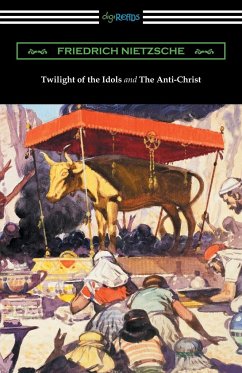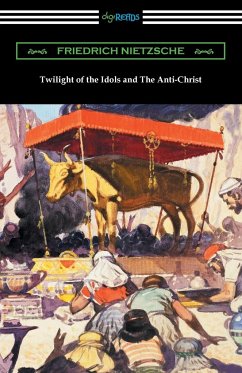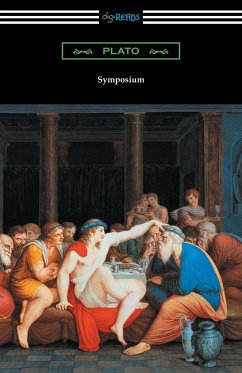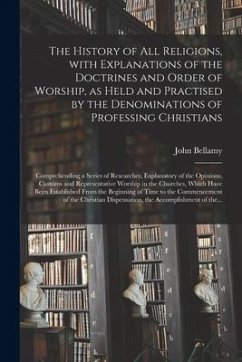
Twilight of the Idols and The Anti-Christ (Translated by Thomas Common with Introductions by Willard Huntington Wright)
Versandkostenfrei!
Versandfertig in 1-2 Wochen
11,99 €
inkl. MwSt.
Weitere Ausgaben:

PAYBACK Punkte
6 °P sammeln!
One of the most controversial and inflammatory philosophers in western civilization, Friedrich Nietzsche summarized his extraordinary ideas in "The Twilight of the Idols." Appropriately subtitled "How One Philosophizes with a Hammer," this work is a polemic on many of the ideas of his day, especially what he describes as the ‘The Problem of Socrates’ and ‘The Four Great Errors.’ Through the process of self-deception Nietzsche discusses the tendency of man to confuse cause and effect. By examining the concepts of accountability and free will, as they relate to vice and morality, Nietzsc...
One of the most controversial and inflammatory philosophers in western civilization, Friedrich Nietzsche summarized his extraordinary ideas in "The Twilight of the Idols." Appropriately subtitled "How One Philosophizes with a Hammer," this work is a polemic on many of the ideas of his day, especially what he describes as the ‘The Problem of Socrates’ and ‘The Four Great Errors.’ Through the process of self-deception Nietzsche discusses the tendency of man to confuse cause and effect. By examining the concepts of accountability and free will, as they relate to vice and morality, Nietzsche attacks the prevalent philosophical systems of his time. Written in just over a week, "The Twilight of the Idols," prepares readers for the principles addressed in "The Anti-Christ." Also written in 1888, it expands on Nietzsche’s blatant disagreements with institutional Christianity. Written to deliberately provoke the reader, Nietzsche’s philosophy is perhaps most shocking not in its frank negativity concerning nearly all aspects of humanity, but in the profound depth of its understanding of human nature and the optimism which subtly affirms the capabilities and possibilities of mankind. This edition is printed on premium acid-free paper and is translated by Thomas Common with introductions by Willard Huntington Wright.















